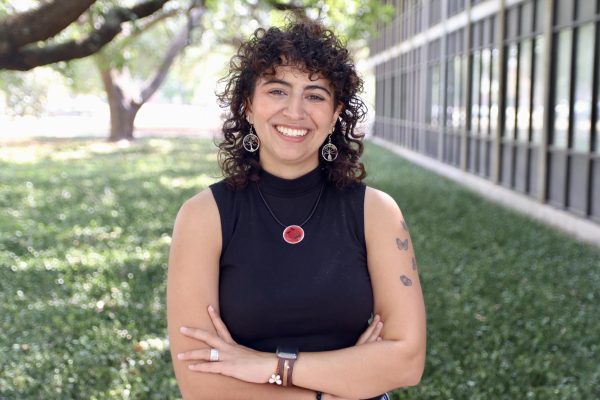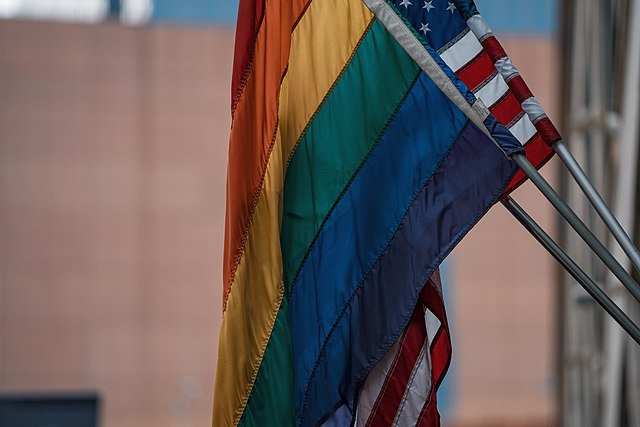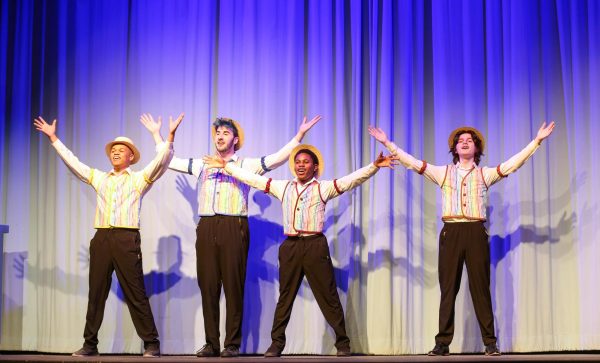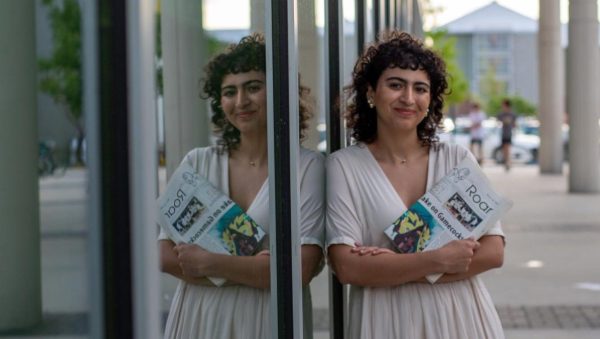Head to head: Don’t be afraid to say gay
As of March 8, the Florida Senate passed House Bill 1557, also known as the “Don’t Say Gay” bill by the public. Governor Ron DeSantis signed the bill into law on March 27.
With the passing of this bill, the way that Floridan children in the education system will be taught about LGBTQ+ topics and discussions will be taking a complete step back.
The Parental Rights in Education bill states, “Classroom instruction by school personnel or third parties on sexual orientation or gender identity may not occur in kindergarten through grade three or in a manner that is not age appropriate or developmentally appropriate for students in accordance with state standards.”
The part of this bill that people have been using to push it are the words “age appropriate” and “developmentally appropriate.” Yes, I would assume that it is common sense that we should not be teaching five to eight year olds inappropriate topics that they do not have the capacity to understand, such as sex.
If a teacher is talking about sex to children as young as five – which people are for some reason correlating with being sexual orientation – then of course they should be fired and never teach again.
However, sexual orientation is not an inappropriate topic; it’s informative and realistic. Gay people exist and instead of hiding this fact from kids, we can normalize LGBTQ+ questions being asked by naturally curious children if they see another child with two moms or two dads.
It would be the equivalent to not talking about race in a classroom or censoring talks about race.
Which we already do to a certain extent when discussing the wrongs that have been done to people of color, but that’s another discussion. Right now, the concern is about our children’s education being censored surrounding LGBTQ+ topics.
I understand if parents don’t want their kids to learn certain things or if they think it’s too much, but that doesn’t mean you get to control what every kid learns in school; at that point I would turn to homeschooling for parents that want to have more control over their children’s education.
I remember when I was eight and watching “Modern Family” with my parents, I kept hearing the word “gay” over and over. I looked at my dad and asked what it meant because I had never heard of it before.
“It’s when two men love each other,” is what my dad said and I just nodded and continued on with my day and life. Kids are relatively good at understanding information when it’s explained to them in a way they can understand.
I’m not saying we should create this whole new curriculum where we teach our kids starting from the age of five what being gay is, but we should not shun their questions away or illustrate it in a complex way and should be able to educate them on reality.
When my children get to the discussion of Stonewall, which was a beginning for gay rights in America in 1969, I want them to be aware of what happened and know that Marsha P. Johnson, a black trans woman, was a prominent figure in the Stonewall uprisings for LGBTQ+ rights.
I don’t want their knowledge about real-world events to be censored. If we can discuss and show children from five to eight videos of acts of violence or terrorism at school, we can explain to them why love is love.
We don’t have to completely understand why people are different, but we do have to respect them.
There is already talk about a similar bill trying to be passed in Louisiana where teachers, staff and presenters would not be allowed to discuss their sexual orientation or gender identity with students from kindergarten to grade 12.
This would once again be censoring our students’ knowledge as well as creating this old stereotype of how someone can be “influenced” to be gay, even though being gay is not a choice and is not caused by influence.
As a former Floridian and an advocate for LGBTQ+ rights, this bill angers me and I want to see steps forward in our states for LGBTQ+ people and our education system, instead of taking steps back.
Editor’s note: This opinion piece is one of two articles in a head-to-head series. Read the other opinion piece here.
Your donation will support The Lion's Roar student journalists at Southeastern Louisiana University.
In addition, your contribution will allow us to cover our annual website hosting costs.
No gift is too small.

Chloe Williams is an English major with a concentration in creative writing and minors in communication and theater. She hopes to become a newspaper...








Lawrence • Apr 13, 2022 at 9:24 am
Taking a plunge into some controversial topics now, I like it..and hate it 🙂
I have not read the bill, nor do I plan to…hate the politics.
My children went to private school, public school, & we homeschooled them for a year…. which was ‘best’, the heck if I know for sure, what I do know is that at home we did our best to teach our children to love before hate and to try and understand others better before making judgements about them. Our three children are some of the best people in the world !
What homeschooling taught me, was that teaching is hard…especially in today’s world.
We expect teachers to be experts in their field, but unfortunately I don’t believe there are experts in the field of sexual orientation, so I guess give teachers an answer to give children when they ask questions like ‘why does my friend have two dads/moms’…children are inquisitive, so they are going to ask and if you don’t provide an answer then they are going to look elsewhere for the answer and that will probably be other children who will repeat what they’ve heard and learned. But as for being an ‘instructional subject’ in the classroom, nah… that’s not an appropriate subject at young ages, teach em the basics at young ages.
Also, your dad sounds like he’s a pretty smart feller, keep on listening to his words of wisdom 🙂
Gabe • Apr 5, 2022 at 12:04 pm
It’s not a “don’t say gay” bill. It’s a “don’t groom kids” bill. Why anyone would feel the need to discuss anything sexual to someone IN THE THIRD GRADE is beyond me. Anyone trying to oppose this bill should seriously be investigated for child abuse because the lengths certain people will go through to try and teach third graders about sex is seriously concerning. Every upstanding member of the gay community that I talk to all unanimously agree that this bill is necessary to protect our kids.
Lisa • Apr 1, 2022 at 6:05 pm
It’s very hard for me to understand those who want to teach kindergarten children about gay families?
Let me ask .. do we require for our tax dollars to teach children about divorced families, those who live in blended families with a step-parent, those who live with a grandparent or other family member bc their parents are deceased or imprisoned, or bc family services deem their parents unfit and they are living in foster care? No, we do not. These are situations IF a VERY YOUNG child doesn’t understand or questions should be taught at home.
I do not send my child to school to learn about the anatomy of what constitutes others children’s families.
Teach my child how to read and write and when they are older ( not in elementary school) I’ll teach them about others sexuality.
Dan • Mar 29, 2022 at 1:57 pm
Why is the left so obsessed with teaching children about gay sex?
Sherl L • Mar 30, 2022 at 5:59 pm
The bill is actually called the Parental Rights in Education Bill. Everyone should read it and make their own determination.